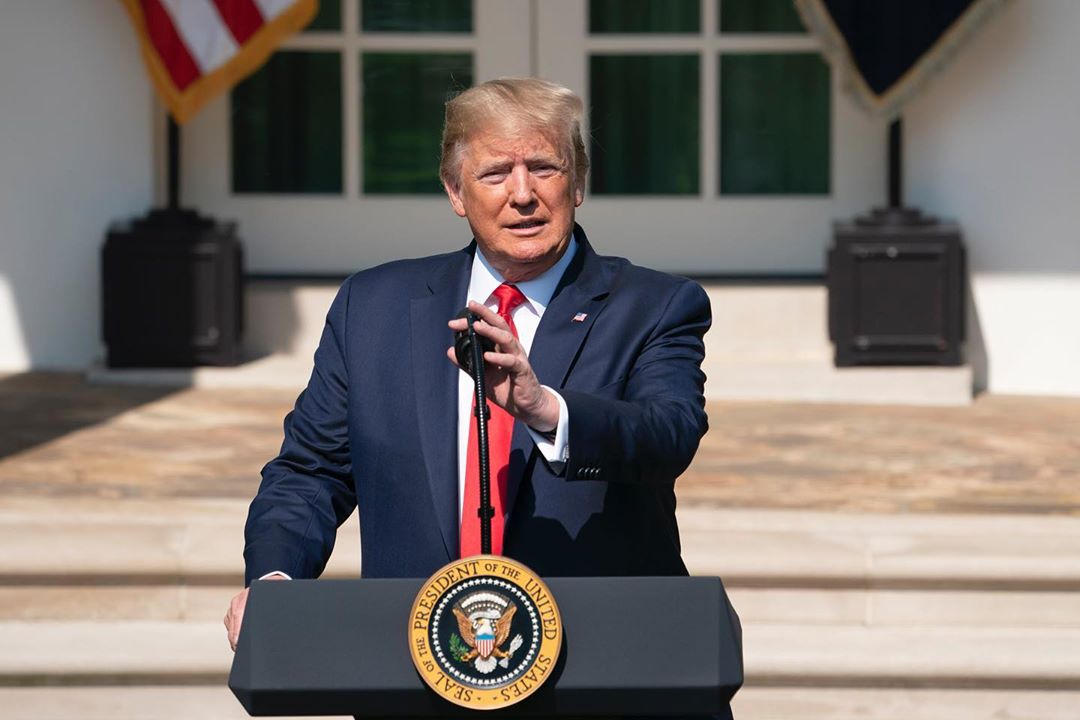News
Trump suspends legal immigration to US for 60 days

FILE: President Donald J. Trump addresses his remarks prior to signing H.R. 1327; an act to permanently authorize the September 11th Victim Compensation Fund Monday, July 29, 2019, in the Rose Garden of the White House. (Photo: realdonaldtrump/Instagram)
WASHINGTON – President Donald Trump on Tuesday said he is halting all legal permanent immigration to the US for at least 60 days, citing a “solemn duty” to protect Americans who have lost their jobs during the coronavirus pandemic.
“By pausing immigration, we’ll help put unemployed Americans first in line for jobs as America re-opens,” Trump told reporters during his now-daily news conference.
“It would be wrong and unjust for Americans laid off by the virus to be replaced with new immigrant labor flown in from abroad. We must first take care of the American worker,” he said.
Trump said that after the initial 60-day period mandated by his yet-to-be-signed executive order expires, he will determine whether additional time is needed.
The order will only apply to those seeking permanent residency, meaning green card-seekers, but will not apply to those seeking US entry on a temporary basis, Trump said. But he later acknowledged that he is considering a secondary order that could further narrow eligibility for US entry.
“As we move forward, we’ll examine what additional immigration-related measures should be put in place,” he said.
Thousands of Americans have lost their jobs amid the pandemic as various state governors have ordered non-essential businesses to halt operations, and many businesses that are deemed essential are operating on a reduced basis.
Unemployment claims have continued to skyrocket each week with some 22 million Americans without jobs.
The US Senate earlier Tuesday moved to replenish a vital small business loan program that ran out of USD350 billion in funding less than a month after it was created, showing the depth of the economic crisis caused by the pandemic.
Treasury Secretary Steven Mnuchin, speaking alongside Trump at his briefing, said the Paycheck Protection Program has saved over 30 million jobs.
The US has been hardest-hit by the coronavirus pandemic, with 820,104 confirmed infections and 44,805 deaths, according to data being compiled by Johns Hopkins University. (Anadolu)





















